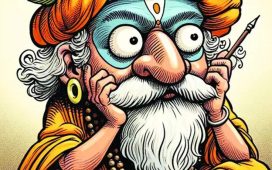After all, G20 was once a forum for finance ministers and central bank governors until it was upgraded to heads of government-level after the 2008 global financial crisis. Das’ management of the twin shocks of Covid-19 and the Russia-Ukraine war, more severe than the 2008 crisis, has won him this accolade.
What explains Das’ success? Critics sneer at him because he has a master’s degree in history and is a generalist career bureaucrat, especially when comparing him to his two predecessors, who were trained economists.
Let’s be clear about Das’ success. The headline macro numbers tell the story. RBI is responsible for macroeconomic stability, mainly keeping inflation moderate and ensuring growth. Despite the almost catastrophic shock of Covid-19, lockdowns and supply chain disruptions, India recovered its growth rate quickly and is once more the world’s fastest-growing major economy. Despite the Russia-Ukraine war and a hangover of the stimulus-induced excess global liquidity and elevated commodity prices, India’s inflation has remained moderate when the rest of the world, including the advanced economies, have suffered from very high inflation.
Several reasons explain Das’ success as a policymaker.
Das has correctly interpreted the meaning of RBI’s independence. A central bank’s independence is not about confrontation with the elected government. Instead, it is to ensure that the monetary policy is not affected by the short-term compulsions of electoral politics. While the elected government always decides the target inflation rate, RBI has the autonomy to use the means at its disposal to meet the target.But monetary policy is not the only instrument of macroeconomic management. Fiscal policy is equally important, and the finance ministry manages that. Sound economic management requires fiscal and monetary policy to work in tandem. Under Das, RBI has a harmonious, constructive relationship with the ministry. This enabled India to come out of two successive economic shocks in good shape. The ministry must share the credit with RBI for stewarding India through difficult times. Das has managed RBI well. The apex bank is a large institution with around 15,000 employees, of which about 6,000 are ‘Class I’ employees, or the professional cadre. They are recruited through a competitive exam and develop expertise during their tenure in the bank. Therefore, an RBI governor can always lean on specialists to assist him in decision-making. (S)He need not be a trained economist.
Apart from the cadre, an RBI governor can also count on lateral entrants at the deputy governor-level who come from banking and economics backgrounds. He also has the expertise of the external members of MPC, who are distinguished academics. The governor must be a leader and decision-maker who takes his team along, as Das does. Das is not a ‘celebrity’ or celebrated economist who doesn’t value his team’s talent.
Economics isn’t rocket science. It’s more common sense. It requires experience and intuition to get decisions right. Das spent several years in crucial roles in the ministry’s department of economic affairs, which handles the government’s relationship with RBI. He retired as secretary of the department. He has considerable experience in RBI’s functioning and relationship management. No amount of academic brilliance and degrees can substitute this experience. Standing out in academia or research can be an individual effort. But in a complex organisation like government, experience and teamwork are necessary for success.
Das has that one skill that defines successful central bankers: he is measured with his words. He restricts his commentary on matters in his domain because every word uttered by an RBI governor has real-world consequences. But he always explains the rationale for his decisions succinctly.
Future RBI governors have a ready role model in Das.
(The writer is Dhiraj Nayyar, chief economist, Vedanta)










